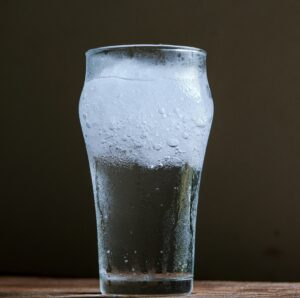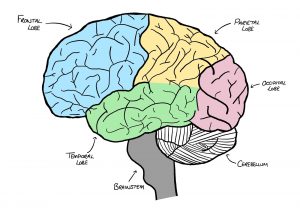Why do we sweat when we eat certain foods?
By Roberta

Have you ever had a very spicy meal and started getting really sweaty? In case you were wondering, it is not only because the dish itself was too hot – temperature-wise – it’s because of the natural compounds that certain foods contain. Keep reading to find out exactly how this works.
The most common food that makes people sweat when they eat it is peppers. Although peppers themselves may or may not be warm when you eat them, they contain a chemical, known as capsaicin, that stimulates the nerves that make your body feel warm. It does so by binding to a special type of receptor, the TRPV1 receptor, which are pain receptors that specialize in temperature sensation. Your brain, thinking you are too hot, then responds to that signal by activating the same mechanisms you use to cool down when you are becoming too warm, the main one being sweating! As this happens, your blood vessels may dilate to release heat, making you look flushed, and your nose may run as a consequence as well.

If you have a look inside a sliced chili pepper, you will see a yellow-orangey pulp in the middle that holds the seeds together. These pulpy bits are what contains capsaicin in peppers. In nature they exist to stop animals from eating the plant and its fruits. Luckily we know that, so we can remove it if we want to enjoy a milder dish.
Other chemicals can cause a similar reaction too. For example, piperine from black pepper or isothiocyanate in wasabi, can also make us feel hot and sweaty when we eat them in certain quantities.
Funnily enough, other chemicals can trick our brain into thinking the opposite, such as that we are cold or that we are eating something cold. Can you guess an example of chemical that might do that? If you were thinking mint, or more precisely menthol, you are right! The menthol in spearmint leaves or peppermint extract activates the cold-sensing receptors on our tongue, giving us that nice, icy cold feeling.

Spicy food isn’t the only think that can make us feel hot though. Foods that have acidic ingredients, like vinegar, or that you eat when very hot, can make you sweat as well.
Moreover, some people claim they can get very sweaty when they eat large quantities of meat. The latter phenomenon still isn’t very clear. The current hypothesis is that when we eat, our bodies convert food into energy, and some of that energy is lost in the form of heat, same as when we exercise. Equally, our body expends energy in order to break down food into its different components. The more food we eat, the more energy we expend, and the more heat is released. Furthermore, some foods might be harder to break down than others, as some scientists have shown. For example, proteins are more complex molecules than carbohydrates, and therefore require more effort, or energy, to be digested. This could mean that if you eat a lot of meat at once, you can produce so much energy in the form of heat that your body would need to cool itself down by sweating. The solution? Spread your proteins out throughout the day and avoid having them all at once.
Finally, although more rarely, a high-sugar meal can also make us sweat. That is because it forces our body to produce a lot of a hormone called insulin. Insulin’s role in the body is to help us utilize and store sugar, taking it away from the circulation. If too much insulin is produced, our sugar levels can drop significantly very quickly, a condition known as hypoglycemia. Hypoglycemia can present with sweating, trembling and hunger sensation initially, but can escalate to become very serious if not treated. Luckily, this can be easily managed by having a sugary drink or a small sweet.



